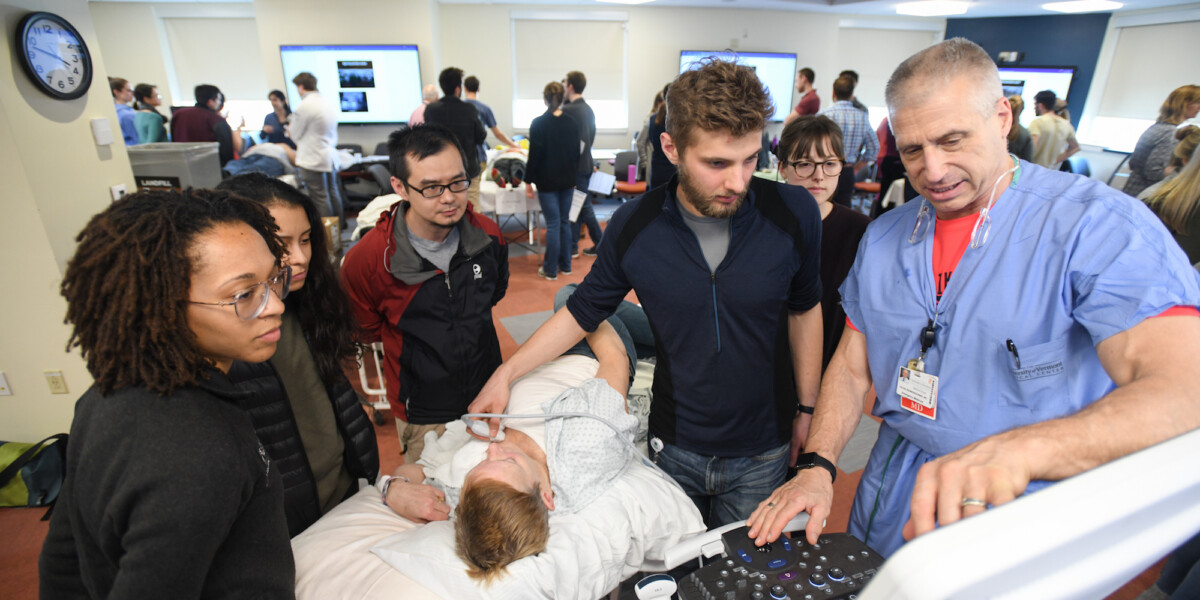Health care is a growing and diverse component of the United States economy, employing about 14.5 million people and accounting for 10.3 percent of jobs nationally.
Over the past decade, the health care industry has added 2.6 million jobs nationwide. Health care’s 22.7 percent employment growth rate over that period significantly outpaced the 2.1 percent employment growth rate in all other industries, according to the Brookings Institution, a private nonprofit organization devoted to independent research and innovative policy solutions.
Meanwhile, US News & World Report reports that 38 out of 100 of the best jobs in 2014 are in health care. In the U.S. Bureau of Labor Statistics’ projection of the 30 fastest-growing jobs, half of those jobs are in health care.
Health care jobs are clearly on the rise, and you can find health care job listings in nearly every community across the country in hospitals, private practice, and nursing facilities.
If you’re interested in working in health care, here are five career planning tips to help you land the job you want.
Career Tip 1 – Take Inventory of Your Strengths and Interests
Tia Trottier, a recruiter at University of Vermont Medical Center, says when it comes to looking for a job, it’s critical to know what you want. Do you want to work directly with patients, or would you rather work behind the scenes? Do you want to be on your feet or at a desk? The health care industry has jobs for many different skill sets, but you need to determine what type of job works best for you. “Honestly assessing one’s personal interests and strengths helps,” Trottier says.
Career Tip 2 – Professional Development and Training
Whether you’ve been in the field for years or have recently entered the health care industry, the changes coming with health care reform require a new understanding during a time of complex change. Certifications, such as a licensed nursing assistant (LNA) or medical assistant, are desirable on the patient care side, Trottier says. If you’re looking to work in health care administration, participating in seminars or taking courses can also help get your foot in the door. Earning a health care management certificate or healthcare administration certificate is a good start, too.
Career Tip 3 – Update Your Resume and Cover Letter
Health care organizations seek a solid work history, ideally related to the job you are seeking. Take the time to write a cover letter specific to the position you’re applying for in health care, and make sure your resume is current. “Misspellings on an application, especially for an administrative job, can be deal breakers,” Trottier says.
If you’re changing careers, many experts suggest leaving off the years you received your degrees – and certainly not including your high school diploma if you went to college. But that doesn’t mean you should avoid touting the fact that you have 10 or 15 years of experience. Use that experience to showcase your vast skills and training, and how your skills relate to the job you want.
Career Tip 4 – Become a Volunteer
Perhaps you want to work in health care but need more experience. Volunteering at a local health care organization is an effective way to develop new, transferable skills. Volunteering also demonstrates to potential employers that you’re contributing to the community and honing your existing professional skills. Volunteering can also help you make new connections in the field of health care and build your network.
Career Tip 5 – Be Realistic, Especially When Changing Careers
It’s also worth noting that there are entry-level jobs in medicine, and some do not require a four-year degree. But what if you have a non-medical degree, are established in your current non-medical career, and want to work in health care? It’s important to be willing to start at a lower level than you might feel is appropriate, Trottier says. It’s also possible that a change in careers will mean a cut in pay. But once you become established in your new medical career, you may be able to catch back up.
What are your career tips? Let us know your advice in a comment below!
*Photo courtesy of University of Vermont Medical Center.





